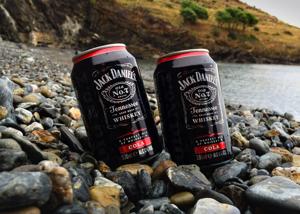Pennsylvania’s takeout cocktails caught in legislative tug-of-war

(The Center Square) – A bill that makes permanent a pandemic policy permitting takeout cocktails went back to the Pennsylvania Senate on Thursday, stripped of a controversial provision that would’ve expanded sales of their canned counterparts outside of state-run liquor stores.
House Bill 1154 returns to the Senate for consideration on a vote of 170-31 after the lower chamber’s Rules Committee repealed a late-stage amendment that would have allowed grocery stores and beer distributors to sell ready-to-drink cocktails.
Currently, only the state-run Fine Wine and Good Spirits stores offer the spirits-based drinks, but Rep. Greg Rothman, R-Camp Hill, said expanding RTD sales is safer than letting bartenders pour mixed drink to-go.
Rothman sponsored a bill earlier this year that likewise would expand the sale of RTDs, but it has yet to advance in the House.
“I can’t support a bill that treats two difference license holders of the exact same license [type] differently,” he said on the House floor on Thursday.
Democrats in the Senate argued that expanding the sale of RTDs is a step toward privatization and hasn’t been properly vetted in the Legislature.
The proposal comes one year after Wolf signed a measure that authorized the sales as a “lifeline” to struggling bars and restaurants that lacked few revenue streams amid widespread pandemic shut downs. But the policy expired when the legislature voted to lift the statewide emergency declaration.
More than 30 other states adopted similar policies throughout 2020, according to the Distilled Spirits Council of the United States, and a dozen more, including Pennsylvania, are moving legislation that makes it permanent.
An analysis from the council released last week concluded that freeing canned cocktails from state shelves could net Pennsylvania up to $184 million in sales tax revenue after a three-year market adjustment period.
The Independent Fiscal Office said in April that the hospitality and leisure sector experienced a disproportionate amount of job loss throughout the pandemic as the administration’s mitigation measures targeted their operations as sources of community spread.
IFO Executive Director Matthew Knittel said workforce for the sector declined 26.3% over the past year, compared to 5.4% across all other industries. Revenues likewise plummeted 55.1% for the sector, compared to just 32.6% for all others.
“I think it’s important that we should be helping our restaurants,” Rothman said. “But the idea that we are going to exclude convenience stores and grocery stores, who went out of their way to purchase R licenses … why are we treating them any different?”
The bill returns to the Senate for concurrence, but its prospects remain unclear.
Disclaimer: This content is distributed by The Center Square

